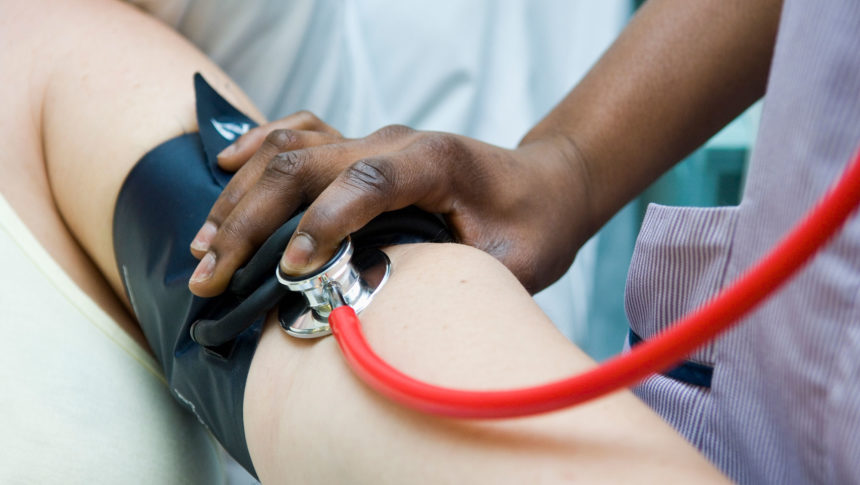
Black and Hispanic stroke survivors with uncontrolled hypertension had a more than two-fold reduction in blood pressure (BP) when they tracked it at home and sent measurements to nurse case managers, compared to those survivors who didn’t have access to nurses, a new study finds.
A team at NYU Langone led the study, which is the first to look at home BP monitoring with or without nurse case management. The report was published Thursday in JAMA.
Data was derived from 450 low-income Black and Hispanic patients with stroke across multiple hospital systems in New York City. The people were assigned to receive home blood pressure telemonitoring with nurse case management or a control group that only got home BP telemonitoring. Of the participants, 72% had an annual household income less than $25,000.
People in both groups took their BP 12 times a week for a year. The results were wirelessly transmitted to a web-based portal, which generated monthly reports that were sent to providers. When readings were too high or low, a clinician was alerted to call the patient. The healthcare professionals discussed stroke symptoms, BP management and lifestyle changes with participants. The nurses also checked on any obstacles participants were having.
Investigators evaluated patients’ BP after one year as well as the rate of recurrent stroke within two years. Both groups had declines in systolic BP after one year compared to baseline; patients in the intervention group experienced a greater reduction in systolic BP of two and half times. But there wasn’t a difference in rate of recurrent stroke between the two groups after two years. Among participants, 4% had another stroke within two years.
“We found that low-income Black and Hispanic patients with stroke and significant comorbidity benefit greatly from telemedicine in general, which we know ramped up during the COVID-19 pandemic,” Gbenga Ogedegbe, MD, lead author and director of the Institute for Excellence in Health Equity and professor in the Departments of Population Health and Medicine at NYU Grossman School of Medicine, said in a statement. “The benefit of home blood pressure telemonitoring was even more profound with the addition of nurse case management.”
Stroke deaths are down overall in the past decade, but Black adults are 50% more likely to suffer a stroke and Black men are 70% more likely to die from a stroke compared to white individuals.




